NZIFF Festival review wrap
Some see it as a challenge, others see it as an endurance sport to be beaten, while others simply view it as a chance to see the best from the world in the majesty of some of the nation's finest venues.
However you take on the annual New Zealand International Film Festival (and ultimately, how you cope with the demands you place on yourself), there are always delights in the darkness and shared times with audiences to celebrate.
But every year, it's the films which touch you in ways you could never expect that end up being the best surprise of the event.
And so far, the 2017 New Zealand International Film Festival is continuing that trend.
From the announcing of the arrival of a major new talent in Lady Macbeth to a Thai film that turned exam cheating into an edge-of-your-seat cinematic experience in Bad Genius, there's still plenty to come and equally, much to reflect on.
Starting with Lady Macbeth, which heralded the immense talents of Florence Pugh, a young UK actress possibly last seen by many in 2014's The Falling and 2016's TV outing Marcella. The devilishly sizzling William Oldroyd helmed Lady Macbeth is a reinvention of the Russian novella Lady Macbeth of the Mtsensk District.
Pugh burns up the screen as Katherine, a young bride trapped in the shackles of marriage and in a home of pure hell. With an extremely strict and brutal father-in-law and a husband who has no interest in her other than barking orders, this repressed bride finds life dull and boring, until a lust is wakened in her in the arrival of a new groomsman.
So far, so predictable.
But where Lady Macbeth's power lies is in its leading actress' apparently innate ability to take one simple moment and turn it on its head, with either just the flicker of an eye or the evident anger etched on an apparently emotionless face.
With a stripped back soundtrack and simple eye of precision behind the camera, Oldroyd concentrates on the moments which will bring maximum shock to the screen - be warned, there are moments that will stun you as this utterly compelling tale of barbed feminism plays out.
Equally compelling, though based on its description, not what you would expect, is Thai film Bad Genius.
Already a box office smash in its home country, and if there's any justice, destined for a Hollywood remake, this essentially heist-movie has already been granted extra sessions in Auckland.
Set in a school where money helps buy you in and keep you there, it's the extremely moral tale of Lynn, a straight A student, who's financially badly off. Approached by her best friend Grace to help her with her grades at her Thai school, Lynn's soon enticed by Grace's boyfriend into running classes to help less able students ace the tests - and with the promise of money, Lynn's soon in and enjoying it....
At its heart, Bad Genius is an old-fashioned morality tale, a story of teens seduced by the promise of easy success and of those struggling against financial hardships offered a quick way out. It's a very familiar formula, but with a look at the moral and social codes of schools wanting the best for their students at a price, it's a gripping piece of cinema that uses flashy tricks and slickly produced set pieces in an exam-room to leave you utterly on edge. It's polished and pristine, and can't be recommended highly enough.
The Farthest documentary will remind you of two things - one, the reason why the space race grips so many of us early on in life when we're dreamers and looking for answers; and secondly, it will remind you of your utter cosmic insignificance.
While a touch over-long at nearly 2 hours (clearly the director Emer Reynolds is entranced by the subjects), this fascinating re-examination of the launch of the Voyager space probes and the team behind them is nothing short of awe-inducing.
As the probes were sent out to map the wonders held by Jupiter, Saturn, Uranus, and Neptune nearly 40 years ago, those involved reflect on how it came together. From the Golden Record which sits within the craft spinning both messages of humanity and music to any who may receive it to the fact in order to protect part of the ship, workers had to practically deprive a local shop of their aluminium foil, this incredibly accessible and boundlessly enthusiastic documentary is life-affirming.
It's easy to see why Reynolds struggled to cull some of this down; the passion and enthusiasm which pour from the screen are contagious. Insights like The Beatles not allowing their music to be licensed for space amuse (and point to the petty battles that pale into insignificance on a cosmic scale) but a reminder of the Challenger shuttle destruction and how it sat against the pioneering spirit of both Voyager and the NASA ethos is still humbling some 30 years on. There's no way you can't expect to leave this in awe of what was achieved in a world before live streams, the internet or computers - it's an incredible salutation to the dreamers and those who push the boundaries.
Equally pushing boundaries, though perhaps more in his own mind, Annie Goldson's captivating documentary Kim Dotcom: Caught In The Web seeks neither to praise nor damn the German hacker-turned-internet-freedom-fighter.
With a piece which feels like it could easily be fashioned into a highly intriguing mini-series, this 2 hour doco flies by and makes the complex approachable as it re-tells the saga that played out on home soil since those ill-fated dawn raids on Dotcom's Coatesville mansion in 2012.
With unprecedented access to archives and a raft of smartly concise and engaging talking heads, Goldson begins to shift the pieces of the jigsaw together with relative ease and veritable aplomb. But her victory here is that she clearly knows all sides of this subject (being involved in media at Auckland University) and doesn't seek to create anything other than a balanced piece. Nobody emerges greatly from the deftly constructed movie - be it police, one of whose number is shown bungling even the simple task of a vaulting a gate at the mansion, the government and GCSB or Dotcom himself.
Goldson's hinted there was so much extra material and more insights into the events that it was necessary to launch a website with greater coverage. And while the main documentary doesn't exactly present new material to those already familiar with the case, its power is that it makes those unfamiliar with it feel like they're up to speed with the complexities of it all.
Everyone's life is on hold in the quietly impressive drama Columbus.
From Haley Lu Richardson's Cassie, whose chance to go to college is on pause as she looks after her mom to John Cho's Jin whose father has had a medical event and whose estrangement has come bitterly into focus after he's called to his bedside, there's a sense of the inert in director Kogonada's subtle film.
Using the prevalence of architecture in Columbus Indiana to frame much of what transpires, and even though the two appear to be kindred spirits, the peaceful pace and perfect slow cinema ambling of the script doesn't allow the film to fall into cliche.
With Richardson majorly stepping up and assuming the mantle of the lead in this, shouldering much of the bookish dialogue and gently truthful banter with great aplomb. There's plenty of veritas in Richardson's performance, and it's a sign once again that she's a significant young talent to watch ; this time in particular, she lends credence to the older edges of the script, but never loses the lightness of touch that a spirit desperate to fly but unable to out of a sense of duty would possess.
Equally, Cho gives something of a quiet internalised performance that's redolent of a sidelined leading man. In his interactions with Cassie, the unusual friendship blossoms thanks to the gentle pace and the languid approach that Cho delivers to his evidently angry and ultimately looking-for-redemption Jin. There's likely to be large swathes of people who identify with Jin (and his protestations that "he never paused his life for me") - but Cho ensures Jin isn't a spoilt brat looking for love, but is more a soul in need of some kind of rebirth.
Columbus is no quirky coming-of-age tale that feels the need to populate itself with self-aware dialogue; this is earnest, honest and heart-warming fare - and because of that, it radiates from the screen.



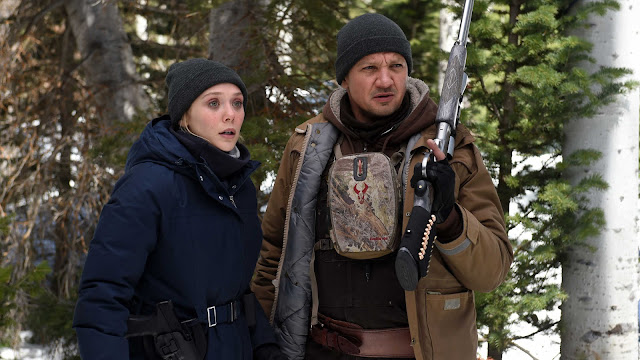



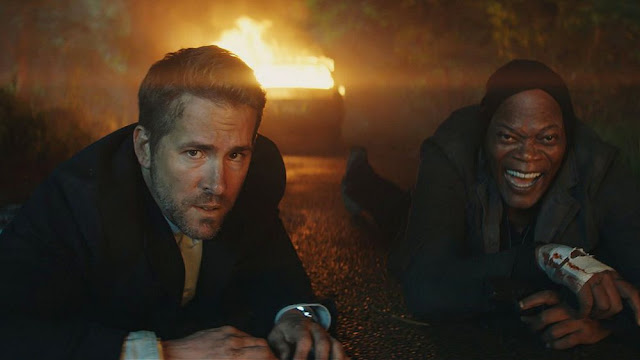




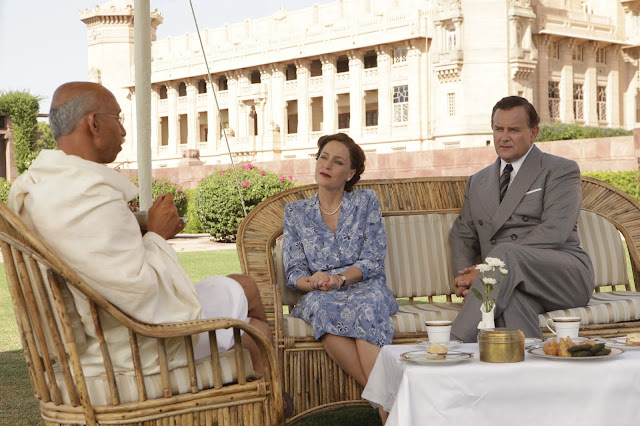




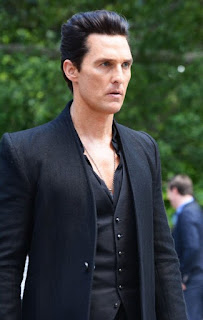


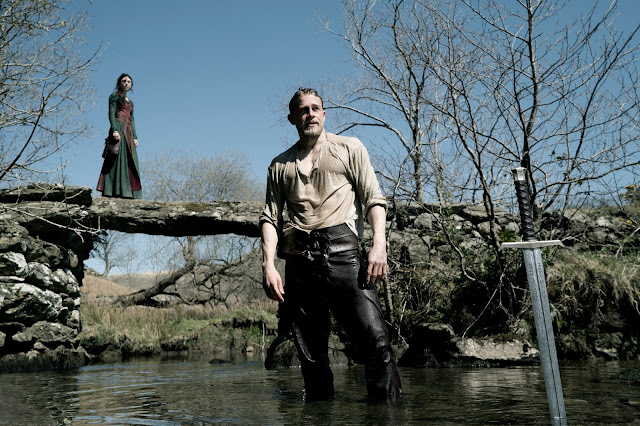





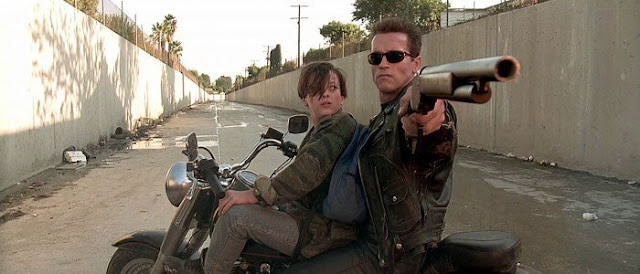





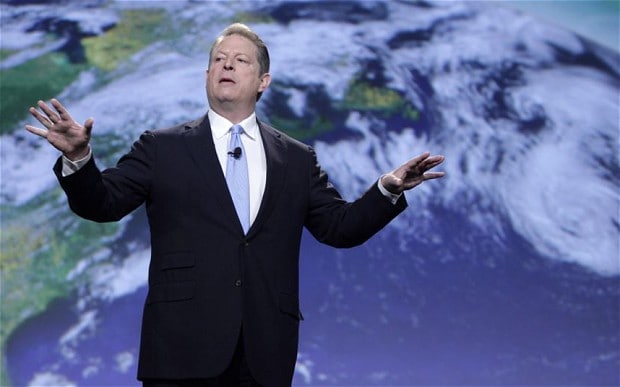





%20&%20Edith%20Poor%20(Lizzie%20Moyle)_%C2%A9BBCS%20&%20Bunya%20Entertainment.jpg)